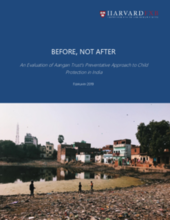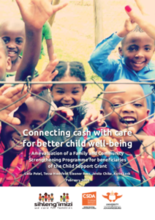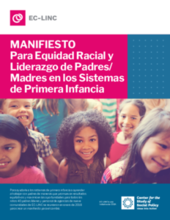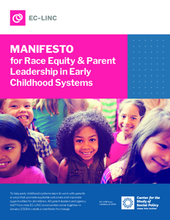Displaying 291 - 300 of 947
This study documents and evaluates the harm prevention work carried out by the children’s rights nonprofit Aangan Trust since late 2015 in Konia, a peri-urban slum area in Varanasi, a large city in the Indian state of Uttar Pradesh.
This report presents the findings of an intervention study evaluating the short-term outcomes of Sihleng’imizi Family Programme, an evidence-based preventative social-educational intervention.
In order to gain insight into the role that decision-making plays in family preservation practice, the authors of this article studied decision-making within a family preservation (FP)-intervention program provided by the Expertise Center.
In the present research, the aim was to develop, implement, and examine the effectiveness of an education program for mothers for the prevention of child neglect.
The Families First Programme, an adaptation of the Positive Discipline in Everyday Parenting Programme to the West Java context, is a parenting support programme anchored on children’s rights that gives parents guidance on child development, parenting and positive discipline practices. This trial will evaluate the effectiveness of the Families First Programme compared with a waitlist control group.
This paper reviews the Friends of the Children (FOTC) long‐term mentoring programme in the US and how it was adapted to serve children and families with child welfare system involvement.
Building on discourse analyses of custody deprivation cases, the authors of this paper call for greater understanding of how disability intersects with parenting and the need for an improved support system.
This study investigated out-of-home placements in Finland among children with a biological mother having schizophrenia, and their relation to maternal characteristics and adverse perinatal health outcomes of the offspring.
Para ayudarle a los sistemas de primera infancia en los E.E.U.U. a aprender a trabajar con padres de maneras que promuevan resultados equitativos y maximicen las oportunidades para todos los niños 40 padres líderes y personal de agencias de nueve comunidades de Early Childhood Learning and Innovation Network for Communities (EC-LINC) se reunieron en enero de 2018 para crear un manifiesto para el cambio.
To help early childhood systems in the U.S. learn to work with parents in ways that promote equitable outcomes and maximize opportunities for all children, 40 parent leaders and agency staff from nine Early Childhood Learning and Innovation Network for Communities (EC-LINC) communities came together in January 2018 to create a manifesto for change.




